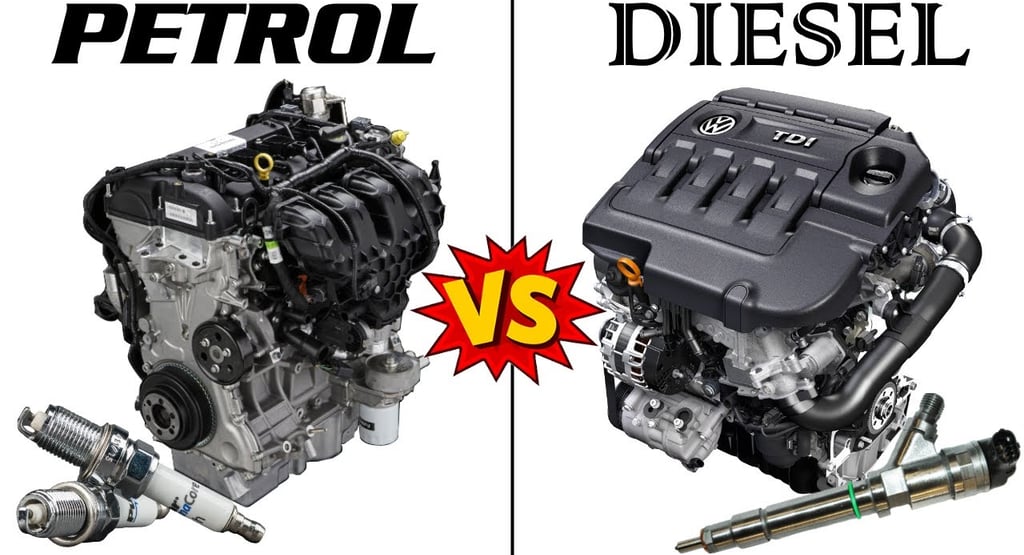A Comparative Analysis of Diesel Engines and Petrol Engines
1/20/20251 min read


Understanding the Fundamentals
When delving into the world of automotive machinery, two of the most prevalent types of engines are diesel engines and petrol engines. Each serves similar purposes but operates on distinct principles. Diesel engines function via compression ignition, where air is compressed to high levels, raising its temperature sufficiently to ignite diesel fuel that is injected into the combustion chamber. In contrast, petrol engines rely on spark ignition, mixing air and petrol in the combustion chamber before igniting the mixture with a spark plug.
Efficiency and Performance Comparison
One significant distinction between diesel engines and petrol engines lies in their efficiency and performance metrics. Diesel engines are renowned for their fuel efficiency, as they extract more energy from the fuel due to the higher energy content of diesel relative to petrol. This translates into better mileage, appealing particularly to utility vehicle owners and those traveling long distances.
Additionally, diesel engines often provide more torque than their petrol counterparts, making them an ideal choice for heavy-duty vehicles and applications requiring significant hauling capacity. Conversely, petrol engines excel in delivering quicker acceleration and higher RPMs, which tends to suit performance-oriented vehicles that prioritize speed and agility over load-bearing performance.
Environmental Considerations
From an environmental perspective, both engine types present their own challenges. Diesel engines have come under scrutiny for emitting nitrogen oxides (NOx) and particulate matter, which contribute to air pollution, whereas petrol engines tend to emit more carbon dioxide (CO2) relative to energy produced. However, advancements in emission control technologies for diesel engines are mitigating some of their environmental impact.
In recent years, the automotive industry has witnessed a shift towards greener alternatives. Hybrid and electric vehicles are gaining traction, but understanding the diesel engine and petrol engine dynamics remains crucial for making informed choices about vehicle purchases and investments in technology. Depending on individual driving needs—whether one prioritizes fuel efficiency, performance, or environmental impact—different engine types may better suit varying preferences.
Support
Ask questions and share truck repair tips.
Connect
© 2025. All rights reserved.
